John Freeman
THE HEAT
At night as the heat’s
warble strummed to
a ticking silence,
and the crabgrass
turned blue then green
then black, the branches
above would relax
and gently pluck my
window-screen, like
the dark-haired woman
who, years later, would
scratch to be let in.
**
UNKNOWING
Your father was born after the earthquake & fire.
Began work at four, buried his mother at six.
Summers he picked prunes in the valley,
the sun searing spots onto his narrow shoulders.
He lost an eye. Blew out his left ear-drum
in a packing plant accident. These things
were what one expected.
He never made friends. They were a luxury,
he could not afford. He smoked for a decade,
through college, when he worked full-time as a
teacher. Nights he dedicated to numbers. Found
pleasure in the orderly arrangement of the known
world. You were a gift, born at the end of the
depression, to his German wife—unaware of
the rubble from which you emerged.
You were a child among the many thousand trees
of Sacramento. Imported to give a desert
valley town some shade. At sixteen you were
given a ’57 Chevy, which you rolled twice
on the way home from football games. Your
license was never suspended. It was too easy
to make such things go away. Your father,
mid-climb into the airless summit of his
unexpected career, did not attend your games.
You had to learn the sting of failure
unobserved. Davis, then Berkeley, then
seminary, where, among closeted homosexuals
and anguished penitents, you felt, in God,
a familiar sense of bruised neglect.
You dropped out; worked as a prison
guard with teenagers put away
after knife fights and bar-room brawls.
One year. Your peripheral vision and drop-
step adjusted, never softened.
We were born in Cleveland, where you had moved
for yet more school, and where you sensed the sinkhole
developing. My mother, cute as a young nurse,
from an Ohio land-grant family which paid her
credit card bills. You lived in the ghetto,
wore zipper boots and drove a dropped ’69 Mustang.
A brick thrown at your head on a passing bus
reminded—you may be an outsider, but your
skin was white.
It took years to conceive. Your gratitude for children
immense. At nights, in Long Island, and then
Pennsylvania, your lips on our heads, were
so kind as to be Unnoticed. We slept unbroken.
I do not remember once having dinner after six.
Our biggest complaint, the wait before we could
race out into the humid falling dark, to hear
the ball’s pop against our new mitts.
Thirty years after you left we returned to Sacramento.
Your mother long since dead. Your father’s two
decades of world travel underway. The sun poured
down on our backs at the swim club, scorching
spots onto our broad shoulders. We trained
like professional athletes. None of us failed.
You provided in your artificial poverty by
adopting an actuarial budget. Everything
would be recorded. We started work before
our tenth birthdays.
We woke to mists, to tinny clock-radio top
forty hits. Slept-walked to the garage, klieg-
lit in the gloaming, where at five you stood
counting newspapers, sprung from their plastic
binding like newborn news. We pedaled
out into the fog as if back into our dreams.
The only sound the squeal and crank of our
wheezing bicycles.
Half-way through the route, our bags like sagged
breasts on our chests, we would come upon your car,
rear-gate agape, classical music aerating the silence.
A light-ship docked among the palm fronds
of an indifferent neighborhood. You fed
us another forty papers, packed roughly and
quickly so that we never finished later than
six. It took me far too long to understand
this was love.
**
OSLO
I’ve been here
before, the hotels
in the bluish light,
squares of ice.
Outside the
opera house
taxi tires crunch
across pavements
of salt, the first
departures. I begin
a letter describing
it all, knowing you’ll
never see it. Later,
I’m down there among
the commuters,
and, for an instant,
it’s as if
you were here. Ice,
lights, the wind’s
knowing sere.
It’s been two years.
* *
Image: Sofia Flores Blasco
[ + bar ]
Edgardo Cozarinsky
Translated by Victoria Lampard and Heather Cleary
From “Ultramarina,” a contemporary opera by Marcelo Lombardero, with music by Pablo Mainetti and a libretto by Edgardo Cozarinsky, based on... Read More »
Trees at Night
Ramiro Sanchiz Translated by Audrey Hall
On the outskirts of Punta de Piedra, there is a bar a good distance beyond the last line of houses. From the untidy... Read More »
Omnia Caro Tenebrarum
Pola Oloixarac translated by Maxine Swann
The living and the dead at his command, Were coupled, face to face, and hand in hand Virgil, The Aeneid, VIII... Read More »
on Edwidge Danticat’s Create Dangerously
Corine Tachtiris
Men anpil, chay pa lou, says a Haitian Creole proverb, many hands make for a light load. As the only Haitian writer widely known to English-language... Read More »
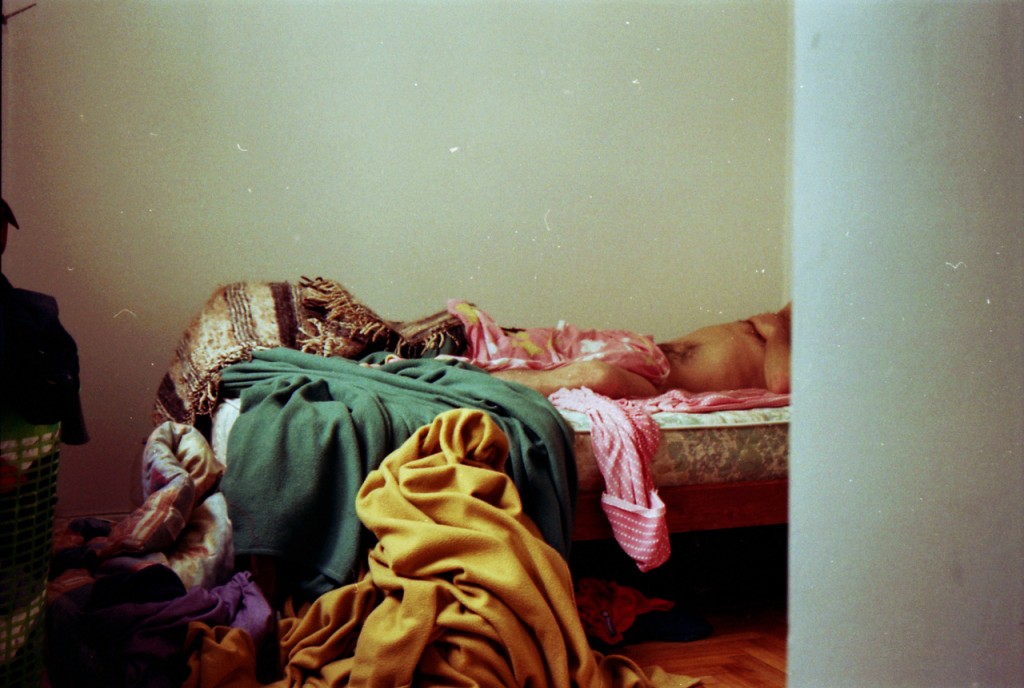
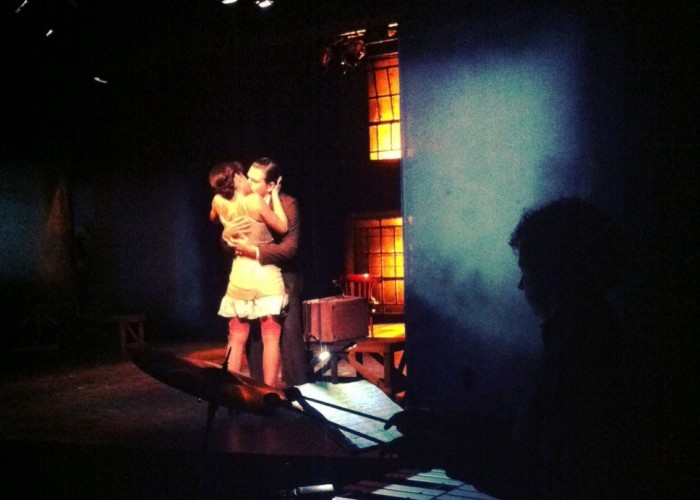
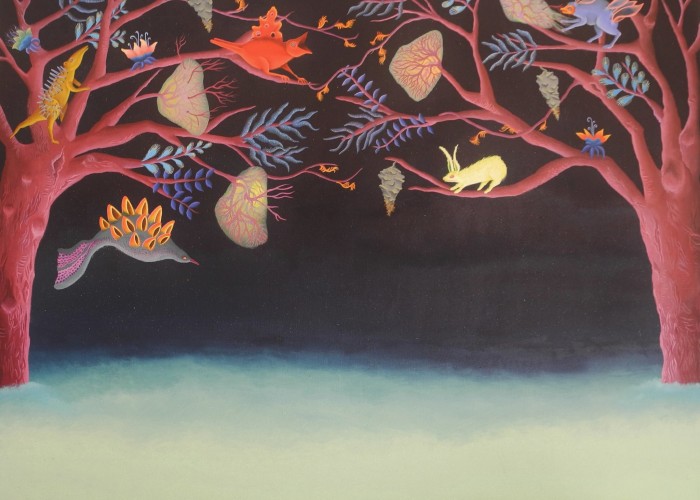
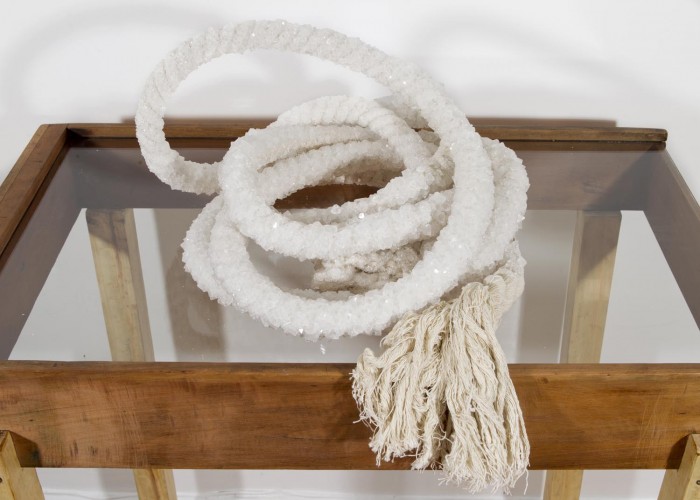
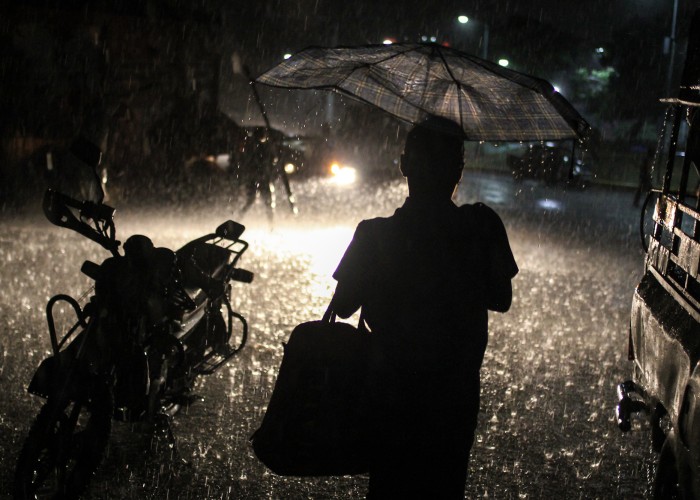



 sending...
sending...